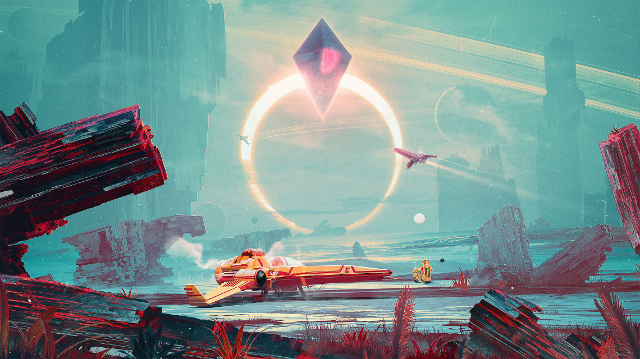Recently, Microsoft announced that Scalebound — one of their oft-touted Xbox One exclusives — had been canceled following a multi-year development cycle. Between the death of a new Platinum game, along with the cancelation of Phantom Dust and Fable Legends, there’s not much to look forward to if you’re an Xbox One owner who doesn’t care about Halo or Gears of War. As Polygon’s Nick Robinson put it on Twitter, many of the big announcements from Microsoft’s E3 2014 press conference have been canceled outright (or erased from history, in the case of Project Spark) or have not been released.
On its face, the Scalebound cancelation combined with the Watch Dogs and No Man’s Sky debacles tells us that it’s time for us to rethink how we get excited about games. The skeleton of this article—the idea that we keep getting fooled by snake oil salesman once a year in June, and now is the time for us to stand up and look at things with a critical eye—has appeared before and will appear some time in the future. It’s like the Cylons, or whatever.
Let me be frank: this will never stop happening on a micro level, because there will always be someone in the world that believes in the inherent truth of the E3 presser. Everyone’s guilty of this!
For years, there was no reason to assume you were being lied to—the person with the lav mic told you this was real gameplay footage and you believed them. I remember coming home from E3 2014 glowing about my experience with Rainbow Six: Siege, and look how that game turned out. But now that we’re coming off multiple games where you could point to developers failing to deliver on specific promises, several announced games getting canceled, and delays out the ass, maybe we could all do our part to change the larger conversation.

It’s not quite as simple as leaving the safety on your Twitter during E3 season. The marketing and information cycle lasts months, sometimes years—a period of time where developers do their best to control the narrative. That often involves a community of vocal enthusiasts, all spreading the word about their awesome upcoming game—AKA us, and you, the reader. It’s not like video games has a cadre of reporters and journalists, in part because a lot of people covering games have no aspirations towards legitimate journalism. And that’s fine, do what thou wilt shall be the whole of the law, ect., etc., ect., but there are only a handful of people in the business with the sources and the desire to break news.
When a game journalist leaks the existence of a new game, breaking away from the marketing cycle and delivering information into the hands of the reader, I think that’s a good thing. Of course players would be more excited if they saw a new Assassin’s Creed revealed on stage at E3, compared to a headline coming out of Kotaku. That’s the point: if you’re not caught up in the endorphin rush you get from a surprise, you can look at a reveal on its own merits, with a critical eye. Is that really so bad?
Also, when game journalists temper their expectations, don’t get mad at them. There was a now-extinct video floating around comparing Giant Bomb and GameTrailers’ reactions to Sony’s E3 2015 press conference (where they unveiled Final Fantasy 7 Remake and Shenmue 3), with the implication being the Giant Bomb editors were cynical jerks, and the GameTrailers team were real fans. And yet, we’re a year and a half out from the initial announcements, with almost nothing to show—there’s a good-to-fair chance those games will not turn out well. But if you say that, you get piled on in the comments for being out of touch or biased or too cynical or what-ev-er.
Have we not learned our lesson? Do you want another No Man’s Sky situation, or do you want the people on the front lines show a little skepticism?







